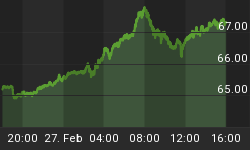It is seems to be universally agreed that regulation is a good thing, ensuring that people are treated fairly by unscrupulous businesses. Regulation is a vindication of state intervention and control. The alternative is seen as a free-market jungle full of hidden dangers and traps for the unwary and innocent.
It is less universally known that regulation was the method that the pre-war fascists used to pursue their political ends, contrasting with communism which sought instead to own the means of production. Post-war, regulation re-emerged in the 1980s when it was used to control newly-privatised state monopolies to make privatisation politically acceptable. And every country that followed the UK in their own privatisation programmes adopted regulation as the means of maintaining state control.
These privatised industries are still regulated today, with the addition of financial services and less obviously perhaps most other aspects of economic life. European socialists reinvented themselves by dropping their commitment to ownership of the means of production in favour of the fascist model. Thus, the policies of the right and left became joined at the hip.
The objective of regulation may be to protect the consumer but the weaknesses are multiple. In framing and operating the rules Government gets to decide what people should have. Businesses use the seal of regulatory approval as a replacement for stand-alone reputation, and regulation eliminates both competition and innovation from unregulated businesses. It ensures that big business has a basis for partnership with government, and that government does big businesses' bidding.
At its heart regulation is therefore anti-competitive. It is not based on consumer choice and the subjective values of goods and services that go with it. Instead it allows businesses to act as monopoly providers, where their costs determine prices. But fixing prices to the cost of production is only a first step: a regulated business can find many ways of placing regulation above the interests of the consumer by gaming the system.
This is most obvious in financial services. Under the cloak of regulation, the general public has become a source of profits not through being provided a benefit, but by simply acquiring its wealth. If the reader doubts this statement, he needs to explain how and why all large investment banks are able to declare trading profits every business day, when an independent professional trader reckons to do well with a 55-60% success rate.
There is nothing wrong with any business having conflicts of interest as such: after all, it is up to the consumer to judge whether or not to deal with it. The wrong is for the state to give business respectability through licencing and regulation, replacing genuine commercial reputation.
Defenders of regulation do not realise that it is primarily a means of state control. This is why all political parties with very few exceptions endorse it. And that is the insidious part of it: in an effort to correct the many wrongs of regulation, more and more regulations, always amounting to greater state control, are subsequently introduced.
Instead of protecting the unwary and innocent, regulation encourages businesses to manipulate the system with a view to enhancing their own protection and profit. As is so often the case with government interference in social and economic matters, regulation achieves the exact opposite of the stated objective.















